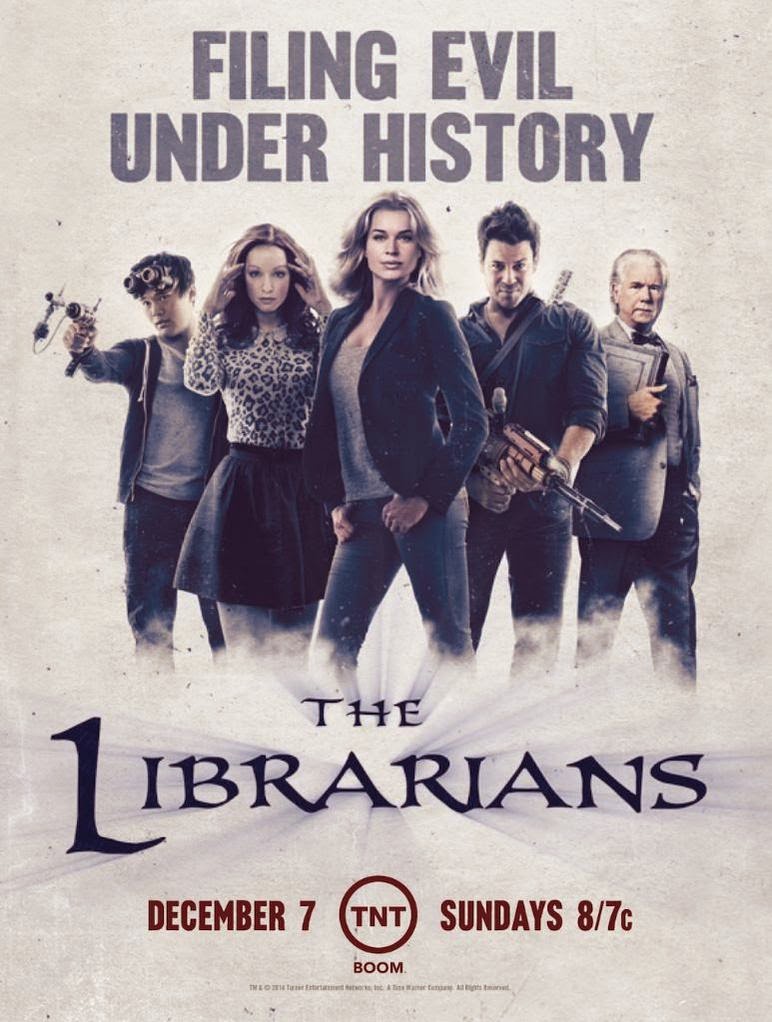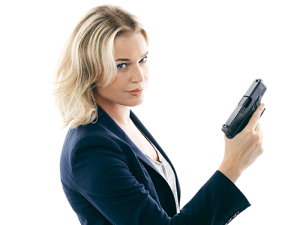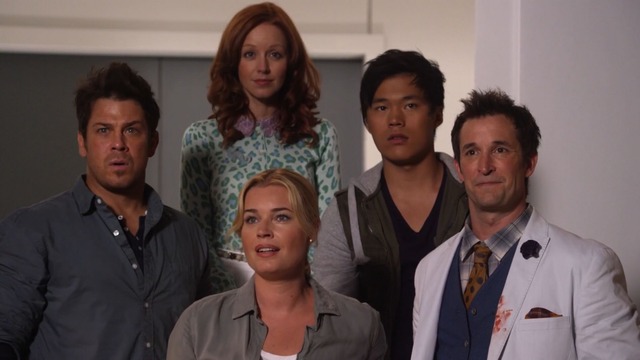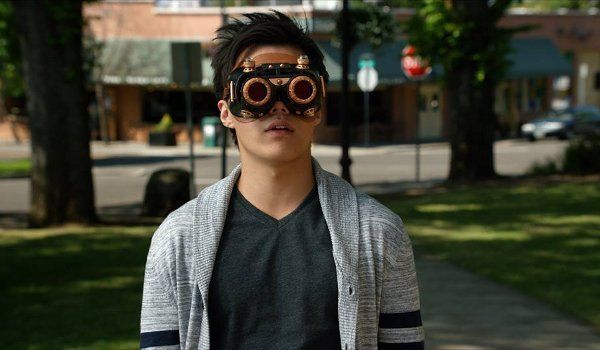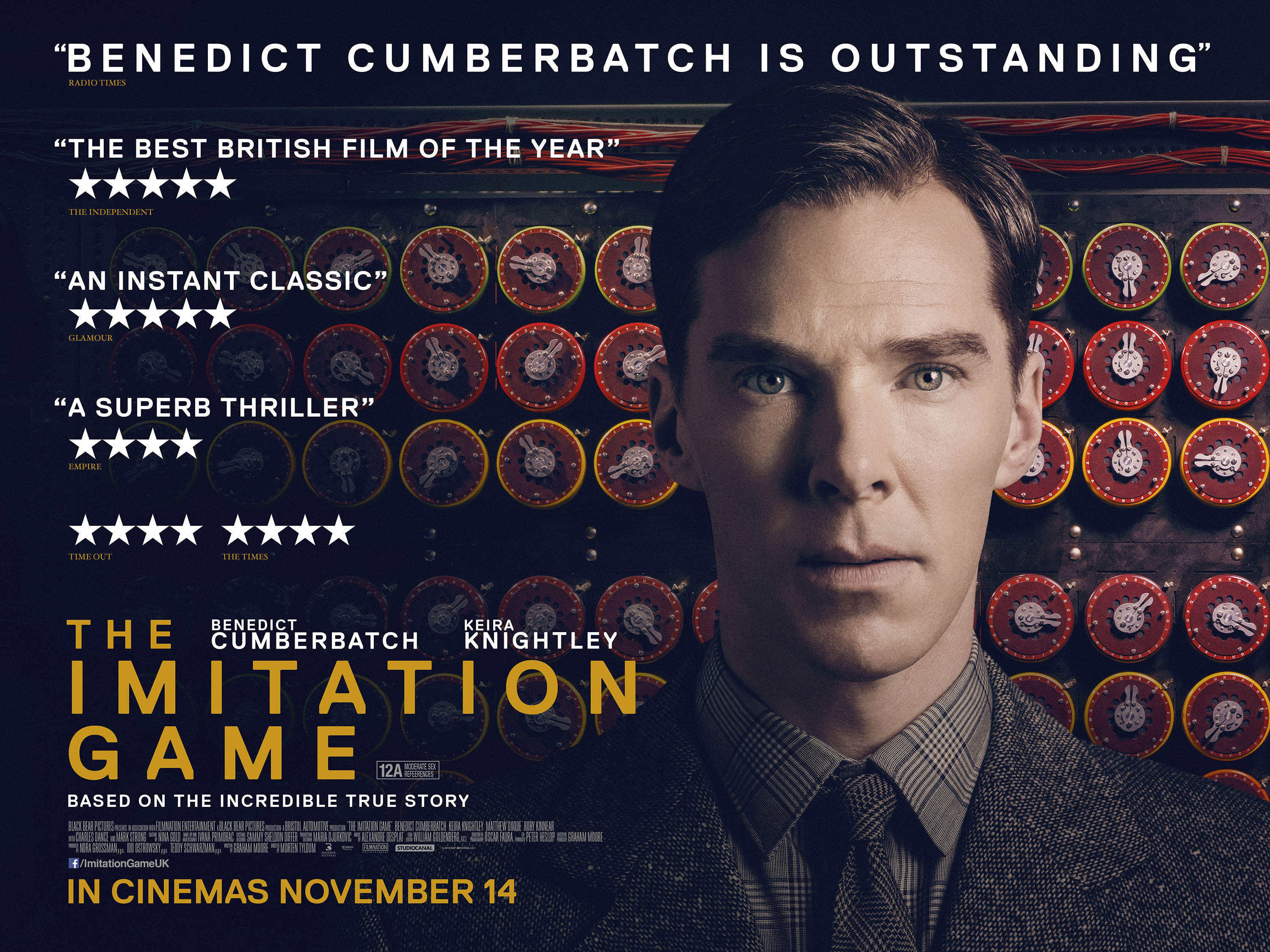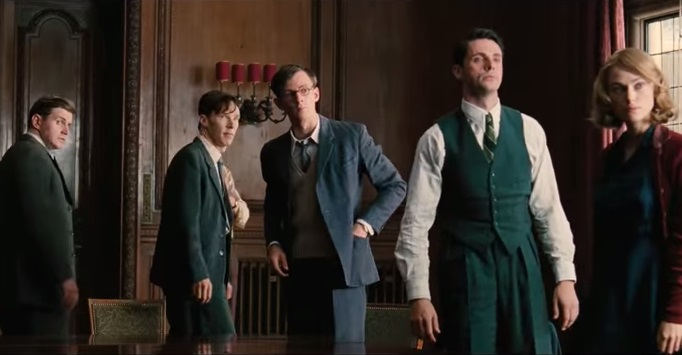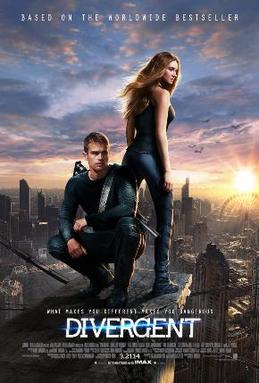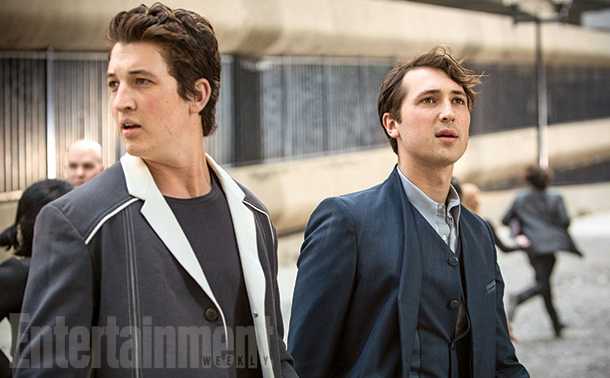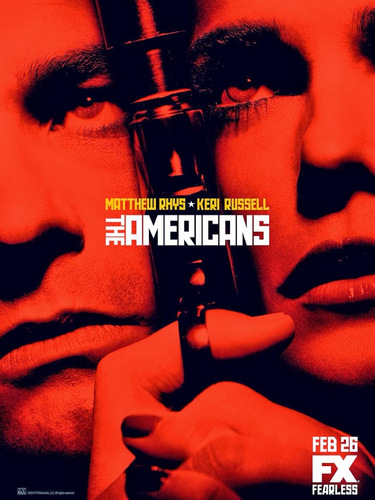THE LIBRARIANS:
THE COMPLETE FIRST SEASON
History: the 900 Section, FYI.
The Librarians has proven itself a hit thanks to its strong cast, a solid self-awareness, and a strong mix of action, fantasy, and comedy. In its ten episodes, we have a show that doesn't take itself too seriously, has successfully spun its own mythology and is above all things, just really, really fun.
One of the things I've enjoyed about
The Librarians is that the viewer doesn't have to know anything about the three television movies that spawned the series. I deliberately avoided
Quest for the Spear, Return to King Solomon's Mines, and
Curse of the Judas Chalice specifically to see if someone needed to know what had come before to understand what was happening. For full disclosure, I do plan on seeing them now that the season has ended.
Noah Wyle, who originated the role of Librarian Flynn Carsen, did appear in the two-part series premiere
And the Crown of King Arthur/And the Sword in the Stone to tie things together. However, since he was given a self-appointed mission of recovering The Library lost in the pilot, he appeared sporadically, appearing in four of the ten episodes. My thinking is that Wyle had more to do as an executive producer on
The Librarians, so while Flynn didn't play a large part of the show, Wyle did have a major role on the show.
I think this was a good move on
The Librarians part. It would have been easy to throw Flynn into a series, and it wasn't as if Flynn didn't play a part. However, by making Flynn's role smaller, it allowed us to embrace the new cast of characters, giving them room to breathe and spinning their own origin stories without having to worry about how they would fit into Flynn's story.
One of the best qualities of
The Librarians is that the characters are so varied. Flynn is a bit of a nebbish, but I imagine for the films this mix of bumbling and brilliance made for a fun character. Wyle's appearances tie things together, and he still has a wonderful way with making Flynn funny and clever. However, each of the characters shows that
The Librarians is a much stronger show with them working together than as merely aides to Flynn.
For me,
The Librarians really is one of the best-cast shows because it seems that each actor is simply perfect in their role.
I like each of the actors and characters, who work so well they make watching
The Librarians into a fun experience. However, there are a few standouts. One of them is John Larroquette as Jenkins, the cranky, cantankerous caretaker of The Annex. In turns droll and sarcastic but with almost an innocent streak, you can't help liking how Jenkins is apparently dragged into things. Larroquette is a master of playing things totally straight. Aware that the situations sometimes lend themselves to silliness, Larroquette never winks to the audience. Instead, his Jenkins is one whose humor comes from the fact that he really doesn't go out much. He makes things funny thanks to his delivery and by not being broad. Instead, by keeping Jenkins more clueless than obnoxious.
Jenkins is never mean or cruel. Sure, he may be sarcastic with the Librarians, but he is sometimes rather endearing in his unaware manner. It's no surprise that Larroquette, a multiple Emmy Award winner in both comedy and drama, is able to handle the fantastical material as well as he does. Now that we have a wider storyline with Jenkins being the legendary Sir Galahad, the idea that Larroquette will be a greater figure in The Librarians is a most exciting prospect.
The second standout, and one who has become extremely popular here at Rick's Café Texan, is Christian Kane as Jacob Stone. I can say what I like about Kane's portrayal of Jake is that he is someone who in a lot of ways, reminds me of me. Granted, I don't think I can rock the hat and buckle as well as he can, but Stone, like me, is someone who appreciates art and history but who is also unapologetically country.
Stone, like Jenkins, is an endearing character. He is obviously extremely bright but not afraid of a brawl. In fact, he's pretty eager for one (a big difference between Stone and myself). Kane balances the believability of a roughneck who secretly writes papers on 19th Century French Impressionists. I think Stone is one of the most fascinating characters on
The Librarians because unlike Jenkins, Flynn, or Cassandra (more about her in a bit), Stone has a bit of a dual identity. They all can celebrate or be celebrated for being highly intelligent. Jake, on the other hand, feels compelled to hide his gift, and finds in this group a chance to be his whole self: the redneck and the intellectual. Like Larroquette, Kane has a strong comedic gift. One of my favorite moments was in
And Santa's Midnight Run, when Stone is genuinely puzzled as to why no one appreciates architecture (art we live in, he calls it), and when he flings himself to save a rare Asian figure. This guy who thinks Christmas should have bar fights also cannot bear the idea of something so rare and fine be lost forever, especially due to his own hand.
I've seen and heard some bashing towards Lindy Booth as Cassandra Cillian, the 'sweet' character. The fact that she is the opposite of Rebecca Romijn's tough Colonel Eve Baird might put Booth at a slight disadvantage. However, I think some of Booth's best moments are when she is allowed to play against her image of the innocent. The moment in
And the Apple of Discord when she turned into a power-mad sex kitten let us in on a secret: Cassandra and Booth could be dangerous and yet funny at the same time.
There are some issues with Cassandra. The subplot of her originally betraying the group comes and goes a lot. She also is sometimes relegated to just being the 'sweet' one, a bit of Rose Nylund from
The Golden Girls. Then again, I do have a bit of a soft spot for her since on a quiz, I tested as a 'Rose'. While I expect there to be a Season Two, I hope we'll see Cassandra not relegated to 'being protected' and has a more expanded role on the show.
Same can be said for John Kim's Ezekiel Jones. Sometimes he appears to be the outlier, as Jones is the only one who doesn't appear to have any interest in actual learning but in using any wits to make a fast buck. Sometimes he almost comes across as an idiot, as when in
And the Apple of Discord he kept digging himself further into a mess by his stubborn refusal to listen to Jenkins. However, Kim has shown that Jones can, on occasion, do the right thing. He can even be noble, and in
And the Fables of Doom we saw that in his own way, Jones can be quite caring towards others without any profit motivation.
Finally, there is Rebecca Romijn as Eve Baird, the Librarians' Guardian. Briefly, I'm glad she is softening, not in terms of strength, but in inability to accept magic as real. I'm glad we have her to fill in the role of the muscle, and that Romijn plays well with the conventions of the tough colonel. She has a strong sense of comedy whenever Eve is made the joke, but at least she's good enough to never overplay the 'Eve's dumb or not as bright as Flynn or Jenkins' bit. She is a bit like the mother hen to the group, and Romijn hopefully will put a few things together in any upcoming season.
The most fascinating thing to me is how
The Librarians has become a family show. I don't know if that is how The Librarians was meant to be, but I'm glad it has become a family-friendly show. There are many shows I like that I think are for adults. Certainly
The Americans and
Bates Motel are things I could never watch with my kids. Even
Gotham is a bit iffy. When it comes to
The Librarians, though, I don't worry. The mix of fun and fantasy allow me to take in the show without feeling excluded or the need to shield my parents or children from the screen.
Many of the comments I've read, and the surveys I've filed out, emphasize that
The Librarians is thought of as a show that everyone can enjoy together. Children enjoy the fantasy aspects, teens have action, adults have comfort in that nothing on
The Librarians is either too scary or tawdry (apart from a few 's-hits' thrown at us). There is violence, but it's a fantasy-centered violence that isn't graphic (plus, it is in self-defense or defense of others). There's no graphic sex or nudity on the show, and the romance we see between Flynn and Eve is sweet and extremely clean.
The Librarians is clean, but clean does not equal boring. It's fun, goofy, irreverent, but it embraces all that, which makes it all the more fun, goofy, and irreverent.
A survey question asks me if
The Librarians fits into the TNT brand. Odd given that TNT just ended (mercifully) the merry hijinks of a couple of men-children who reveled in booze and broads. In the
Franklin & Bash pilot, we saw Mark-Paul Gosselaar's ass spread before us in all its glory. In
The Librarians pilot, we had Noah Wyle playing with Excalibur with the enthusiasm of a twelve-year-old.
For me, one who works at an actual library, I love the fact that
The Librarians celebrates knowledge. It plays with the idea that librarians are stern, meek, and just interested in the Dewey Decimal System. It makes intelligence and teamwork central to having a fun and fantastic life.
The Librarians is a great mix of witty and whimsy, one that knows what it is and embraces it. It's a fun frolic, where magic is real, the characters individually strong but perfect in unity, played by a strong cast that makes each character unique and interesting. The scripts are fun and logical (at least for the world of
The Librarians) and in the final analysis,
The Librarians is a romp, a lark, and just a really good time.
Here's to a highly successful First Season, and hoping Season Two will be equally successful.
 |
Storytime? I've got your Storytime.
Seriously, it's on Tuesdays, Wednesdays, and Saturdays at 11.
Cookies and punch served after. |
Next Episode: And the Drowned Book



